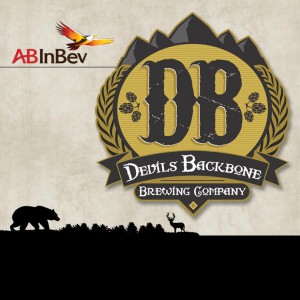
The sale of Devils Backbone to beer giant Anheuser-Busch InBev has had rapid aftershocks within the industry.
Devils Backbone co-owner Steve Crandall, who had served on the board of the non-profit Brewers Association and chaired the trade group’s market development committee, offered his resignation last Tuesday, the same day his company announced the sale to A-B, Crandall told Brewbound.
The decision to resign is a result of the sale, Crandall said, noting that his company would no longer be considered craft in the eyes of the BA, which defines American craft brewers as “small, independent and traditional.”
The sale to A-B, which is not expected to close until the end of the second quarter, strips Devils Backbone of its independence — the BA stipulates that craft breweries must be less than 25 percent “owned or controlled by an alcoholic beverage industry member that is not itself a craft brewer.”
“They are really focused on trying to keep some distance between the folks that have gone outside of their definition and I personally think it should be about beer and what is in the glass,” Crandall told Brewbound.
Further illustrating the ways that increased investment in breweries is colliding with the craft space, Crandall said he had skipped a February association board meeting because he had already signed a letter of intent with A-B.

At the time, Crandall said, he had told Rob Tod, the founder of Allagash Brewing and the executive committee chair, that his attendance would be a “conflict of interest.”
“I didn’t think it would be fair for me to sit in on a meeting where some discussion may be had that was germane to the direction the BA wanted to go with respect to larger brewers,” he said. “They didn’t ask any questions and they kept it confidential.”
Devils Backbone will still remain an associate member of the BA and continue to enter beers for judging at competitions like the Great American Beer Festival, but the company will no longer be allowed to vote on important association issues, according to the group’s bylaws.
In a statement emailed to Brewbound, Brewers Association CEO Bob Pease said the group “respects every brewery owner’s rights to make their own decisions regarding their business.”
“In the case of the sale of Devils Backbone to Anheuser-Busch InBev, this impacted Steve Crandall’s eligibility to continue to serve on the BA Board as an elected packaging brewer representative, as outlined in the association’s bylaws,” he wrote. “Steve resigned his seat on the Brewers Association Board of Directors when news of the sale hit, effective immediately. In anticipation of the sale, Steve had recused himself from any board discussions that represented potential conflicts of interest. Steve has handled this transition with the utmost of professionalism and transparency.”
Meanwhile, as a result of the deal, Devils Backbone has also been barred from pouring beers at the BA-run “Savor craft beer & food experience,” an expensive beer and food pairing event held annually in Washington D.C.
The Savor event is only open to “US professional brewery members of the Brewers Association that are currently Professional Packaging or Pub Brewer members as defined by the Brewers Association bylaws, or Associate level members who are craft brewers,” according to participant rules posted on the event website.
“With the announcement of the sale to Anheuser-Busch InBev, Devils Backbone falls outside the eligibility requirements for brewery participation in Savor, which are published in advance of the event on the Savor website,” Pease wrote.

Crandall said his company had already paid $6,000 to sponsor the event.
“We had signed up, had hotel room reservations and everything ready to go,” he said. “We didn’t really know there was an exclusionary position on that, which was a bit of a disappointment.”
Nevertheless, Crandall said he looks forward to an opportunity to continue working alongside the BA as an associate member, and hopes to discuss the possibility of reworking the association’s bylaws to be more accepting of craft breweries who have sold to larger beer companies and no longer meet the BA definition of what it means to be a “craft brewer.”
“I believe that we should be talking about the beer, not who does what,” he said. “I know they are fighting for their ideas on what they feel is right. Should they decide that maybe there is a good reason for them to be more inclusive, I would love to be at the table to discuss that.”